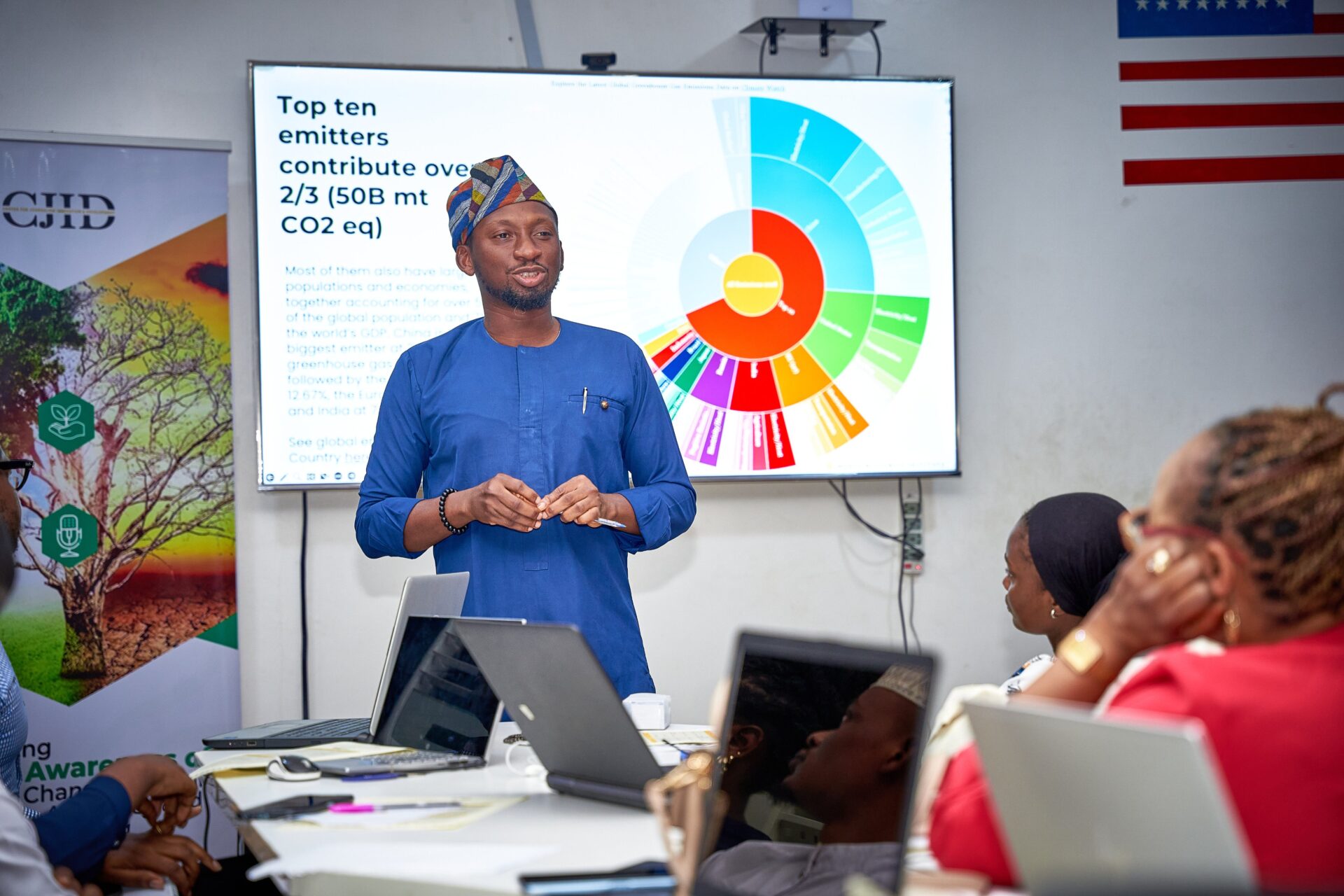By Saint Ekpali and Rejoice Taddy
The Centre for Journalism, Innovation, and Development (CJID) has trained about 15 journalists in climate change reporting in partnership with the US Embassy in Nigeria.
The training, which took place over three days, covered a wide range of topics, including the concepts, evidence, causes, and impacts of climate change in Africa; how to approach climate reporting from a solutions angle; how to use data to present an excellent climate report; how to report flood and environmental issues; and how to find story ideas and report on just energy transition, renewable energy, and climate finance in Africa.
Participants were also taught about the importance of gender-balanced reporting and how to watch for stories around Conference of Parties (COP) events.
In her opening remarks, Aisha Gambari, the representative of the US Embassy in Nigeria, encouraged participants to pay keen attention to the training details and to create impactful stories that would lead to a more sustainable environment.
Akintunde Babatunde, the Director of Programs at CJID, also emphasized the importance of impact tracking for journalists. He encouraged participants to follow up on their stories to see the impact they are making and to use social media to promote their work.
The training was facilitated by experts in the field of climate change reporting, including Dr Tobi Oluwatola, the Executive Director of CJID; Abdulkareem Mojeed, a climate reporter with Premium Times; Idris Akinbajo, an editor at Premium Times; and Busola Ajibola, the Deputy Director, Journalism Projects at CJID.
Speaking on the sideline of the training, Nicholas Adeniyi, the Project Coordinator, told Prime Progress, “ The objective of this workshop is to build the capacity of journalists to report climate change. We find out that over the years, a lot of journalists have been reporting environmental issues, and many of them have been trying to report climate change as climate change is a global emergency and existential threat to all mankind.”
He added, “ In Nigeria and across West Africa, many journalists are struggling to understand what climate change really is, and difficult for them to connect it in their storytelling. Climate change is a mainstream issue and not limited to environmental issues alone. It cuts across health, security, and technology. This training is aimed at building the capacity of journalists to know more about climate change.”
Participants at the training expressed their appreciation for the opportunity to learn from experienced journalists and to gain new skills in climate change reporting. They pledged to use their knowledge and skills to produce more informed and engaging stories about climate change.
The Centre for Journalism, Innovation, and Development (CJID), in collaboration with the US Embassy in Nigeria, organized a three-day training session for 15 journalists on climate change reporting. The training covered various topics, including the evidence and impacts of climate change in Africa, strategies for solution-focused reporting, the use of data in climate reports, and reporting on environmental issues such as floods. It also included sessions on gender-balanced reporting and coverage of Conference of Parties (COP) events.
Aisha Gambari from the US Embassy encouraged participants to create impactful stories for a sustainable environment, while Akintunde Babatunde of CJID stressed the importance of tracking the impact of journalistic work. Expert facilitators included Dr. Tobi Oluwatola, Abdulkareem Mojeed, Idris Akinbajo, and Busola Ajibola.
Project Coordinator Nicholas Adeniyi highlighted the objective of building journalists' capacity to effectively report on the global emergency of climate change. Participants expressed gratitude for the training and committed to leveraging their new skills to produce more informed and engaging climate change stories.






